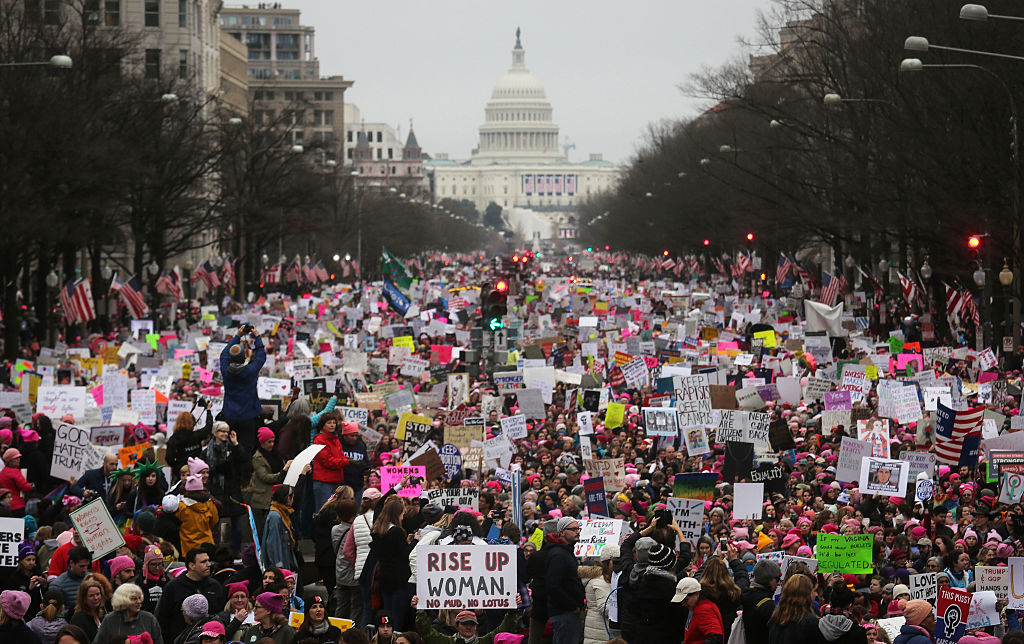Let me be clear: I am a committed feminist and a passionate supporter of the Enlightenment and its ideals. Indeed, I have been the beneficiary of those ideals in ways unimaginable to most people in the western world. I traveled from a genuinely patriarchal society poisoned by Islamism to a free, secular society where women, whatever issues we might still have, were equal to men under the law and able to pursue opportunities I could scarcely have dreamed of growing up.
As I have written before, however imperfect western civilization might be, we haven’t seen anything like it anywhere else in human history. The progress we have made is dizzying. One of western civilization’s greatest achievements is the emancipation of women. For most of human history, and still across large swaths of the world, women have been, at best, second-class citizens and, at worst, chattel. In the West today, women are freer than they ever have been. Why would a woman want to be born anywhere other than in the modern West?
But however grateful I am, I cannot pretend that the legacies of feminism and the Enlightenment are perfect. Like many women born into societies that oppressed them, I fully embraced western feminism, warts and all. But these days I am beginning to really see the warts.
When I first read Christina Hoff Sommers’s 2000 book The War Against Boys: How Misguided Feminism Is Harming Our Young Men, I admit that I was puzzled. Now I realize that Sommers was on to something. I paid too little attention to her argument that boys were being left behind by badly thought-out policies which penalized them as being privileged and as barriers to the equality of girls. I am grateful to Sommers and other writers who have offered enlightening critiques of modern feminism and the sexual revolution, among them Mary Eberstadt, Louise Perry, Caitlin Flanagan and Heather Mac Donald.
Much of modern feminism — and I want to emphasize that I in no way mean to denigrate all modern feminists — seems to be more interested in vengeance than fairness. Whereas feminists of the past focused on attaining legal and social equality between men and women, too many today desire power rather than real justice. How else to explain the authoritarianism evinced by many feminists over utterly trivial issues like so-called “manspreading”? Even one of the world’s most powerful women, Hillary Clinton, has recently complained about manspreading — in this case, from Vladimir Putin. So while Ukrainian women are being raped by Russian soldiers and women in Iran face beatings and imprisonment for daring to remove their hijabs, western feminists shriek at the way men sit on public transport.
You would also not know from mainstream feminism that Sommers was right: boys and men face daunting challenges of their own because of their gender. A 2019 study on how gender stereotypes impact adolescent health in fourteen low-income countries found that boys were more likely to report neglect, abuse and involvement in violence than girls. The study’s co-author Robert Blum notes that “the only group where life expectancy has gone down is white men over fifty, mainly due to self-directed violence and access to guns.”
This holds for wealthy countries, too: the Basic Index of Gender Inequality, which claims to use a less female-biased methodology, shows that in the US, boys are, among other inequalities, less likely than girls to be enrolled in secondary education and that men have a lower life expectancy than women. The great emancipation of women has gone hand in hand with the great emasculation of our brothers.
None of this is to deny that women and girls still have issues in the West. Indeed, my nonprofit, the AHA Foundation, works hard to end female genital mutilation, child and forced marriage and honor violence right here in the United States. But it is accurate to say that male issues are often ignored because mainstream feminism is too preoccupied with laughable “problems” like “mansplaining.”
Why the silence? As I said, I suspect it has to do with vengeance. The popular slogan “the future is female” is very telling: the past was male-dominated, so now we women must dominate the future — and who cares if that means men have a few problems of their own? This spirit is also apparent in other emancipation movements. Racial equality is out. “Equity” is in.
In universities, I see countless beautiful young women angry at their supposed victimhood. I have come to think of this as the Titania McGrath phenomenon, named for British comedian Andrew Doyle’s parody of ultra-woke activism. These Titanias shout and scream about the silliest of non-issues while ignoring the very real issues facing women — and men. Titania, to me, is a stand-in for the new, vengeful form of feminism. She would rather deconstruct patriarchal norms in movies than do anything as genuinely meaningful — or as uncomfortable — as challenging the misogynistic values of, for example, many Muslim communities in the West and beyond, let alone advocating for boys and men.
If feminism is to reclaim its radical, transformative, humanist spirit, then it must tame Titania. It must knock her from her powerful perch in education, entertainment and beyond. It must rediscover its universal ideals. It must stand up for minority women and recognize that men, too, are victims of gender inequality.
This article was originally published in The Spectator’s August 2022 World edition.





















